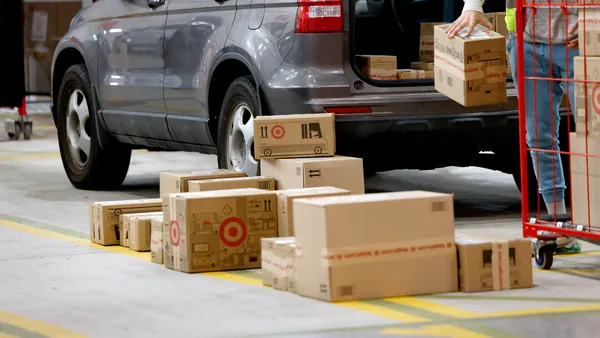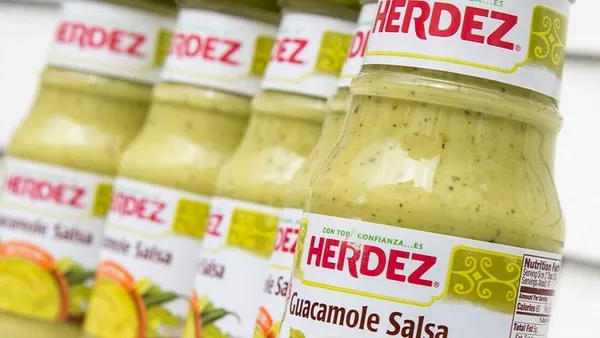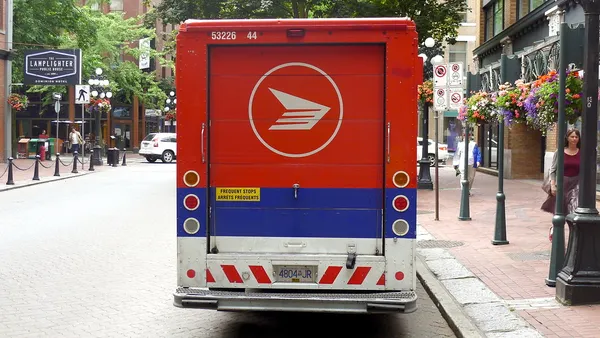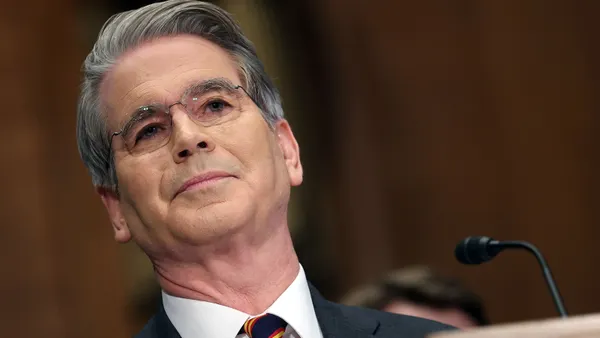Dive Brief:
- A report from the U.S. Department of the Treasury issued Tuesday calls for an overhaul of U.S. Postal Service pricing to pull the service off what Treasury Secretary Steven T. Mnuchin called an "unsustainable financial path."
- The report, generated by the Task Force on the United States Postal System, recommends rate hikes in several categories of mail and parcels with a focus on package delivery. "The USPS has a dominant market position in B2C e-commerce segments and can take advantage of lower delivery costs and mailbox access. The USPS should price these competitive products to generate income rather than maximize volume."
- Between fiscal year (FY) 2007 and FY 2018, the USPS experienced net losses totaling $69 billion, according to the report.
Dive Insight:
The Treasury report was ordered by President Donald Trump, who has been a tough critic of the USPS in the past and an even tougher critic of Amazon, which may take the largest hit from these changes if enacted.
For decades, the USPS has operated under what the report calls a "least-cost" model, prioritizing capacity over profitability. The task force suggested removing pricing caps on mail and packages not deemed "essential services," to move away from this model and toward a more commercially sound strategy.
The closest the report comes to a full definition of "essential services" is, "packages for which a strong social or macroeconomic rationale exists for government protection in the form of price caps and mandated delivery standards ("essential services”), versus those types of mail and packages that are commercial in nature, and therefore would not have a basis for government protection."
All e-commerce packages would, therefore, appear to be considered non-essential. According to the report, mail intended solely for commercial purposes, such as marketing mailers, would be excluded, and "transactional" mail-like bills would be in. The only package types expressly listed as essential are person-to-person packages and medical prescriptions.
Not all stakeholders and observers agree on the state of the USPS. Morgan Stanley analysts recently wrote that the service is a "formidable opponent" to UPS and FedEx, having found its niche in last-mile delivery.
And The Package Coalition, a private sector group including the National Retail Federation and many e-commerce-focused retailers including Amazon, offers a counter-narrative to the Trump administration description of the USPS as faulty and failing.
"The Postal Service’s package business is a bright spot that is growing and profitable. In 2017, postal package delivery services contributed a $7 billion profit to the U.S. Postal Service’s overall bottom line — a result of USPS’ unparalleled ability to deliver packages to more than 159 million points of delivery, seven days a week," said spokesperson John M. McHugh in a statement.
The Coalition is opposed to the hikes, stating concern that rate hikes will be passed on to the consumer.
Amazon is expected to take a significant hit if these changes go through on top of USPS price hikes approved last month and going into effect Jan. 27, 2019, which will cost the company between $400 million to $1.1 billion, according to an estimate from Credit Suisse analyst Stephen Ju.
Most of the changes to USPS service proposed by the Task Force do not require legislative approval — only changing delivery days would require action from Congress.















